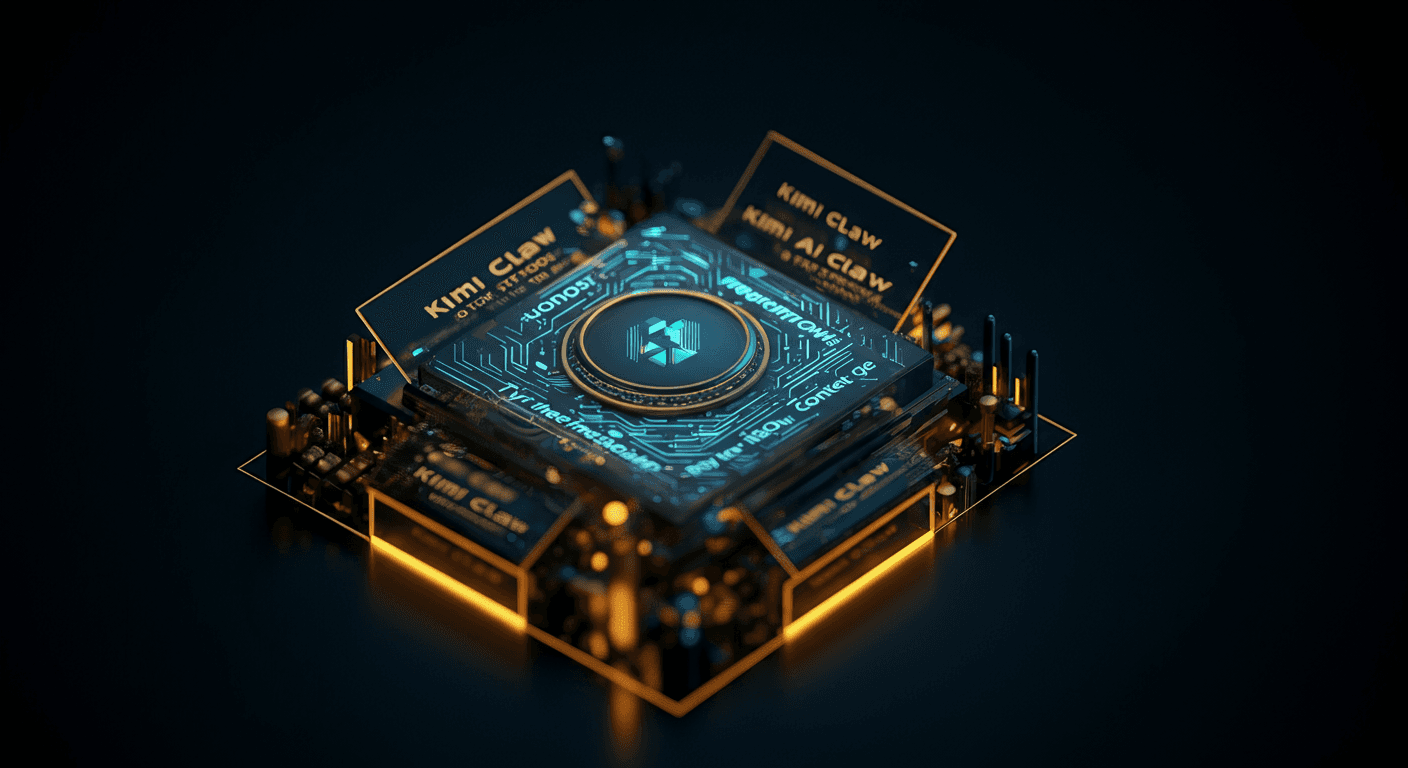Character.AI: How Storytelling Replaced the AGI Dream – and What It Means for AI's Future

Character.AI's ambitious journey took an unexpected turn, but its impact on the AI landscape remains significant.
Character.AI's AGI Ambitions
Initially, Character AI marketed itself as a pioneer in the race towards Artificial General Intelligence (AGI), promising a future where AI could understand and interact with the world as comprehensively as humans do. Their messaging focused on building adaptable AI, capable of learning and performing any intellectual task that a human being can. The company's Character AI initial goals fueled excitement and attracted significant early investment.
Pivot to Interactive Storytelling
However, the AGI dream morphed into a focus on storytelling and interactive narratives. Users can now create and interact with AI-powered characters, building unique stories and personalized experiences. This shift is particularly evident in the platform's user interface and feature set, now heavily oriented towards creative expression and imaginative play.
Why Character AI Shifted Focus
Several factors likely contributed to this strategic change, addressing the 'Why Character AI shifted focus':
- Market Demand: The demand for engaging and accessible AI experiences proved stronger than the immediate appetite for general-purpose AI.
- Technical Limitations: Achieving true AGI remains a monumental technical challenge, and storytelling offered a more attainable and commercially viable path.
- Business Model Evolution: Character AI business model evolution has allowed the company to generate revenue through subscriptions and in-app purchases tied to premium features and content.
In short, Character.AI's shift highlights the adaptive nature of the AI industry, where practical application often takes precedence over theoretical ideals.
Character.AI, once aiming for AGI, has pivoted, captivating users through immersive storytelling.
Understanding Character.AI's Storytelling Ecosystem
Character.AI isn't just another chatbot; it's a platform built for crafting and interacting with AI personas. Imagine a stage where you're both the playwright and an active participant in the drama – that’s Character AI.
- Character Creation: Users can define personalities, backstories, and even specific speaking styles. Think of it as coding a character's DNA.
- Dynamic Interactions: Engage in conversations that feel genuinely reactive and tailored to the character's defined traits. Character AI features and capabilities allow for dynamic exchanges far beyond scripted responses.
- Story Generation: Users can write complete stories, or role-play different scenarios with the AI characters. See how Design AI Tools are also useful for creating visual elements in your stories.
How It Works Under the Hood
At its core, Character.AI relies on neural language models. This conversational AI technology is trained on massive datasets. But its secret sauce lies in:
Contextual Awareness: These models generate responses that consider not just the immediate prompt, but the entire history of the conversation. It’s like having an AI that actually* remembers what you talked about five minutes ago.
- Fine-Tuning: Character.AI allows for continuous fine-tuning based on user interactions, improving the relevance and coherence of responses over time.
- Creative Freedom: Unlike some AI tools focused solely on information retrieval, Character.AI is designed to encourage creativity and exploration, allowing users to generate stories in unexpected directions.
The Future of AI and Storytelling
Character.AI demonstrates that the path to impactful AI might not be through achieving artificial general intelligence. Instead, crafting niche experiences can be a more productive and captivating direction. What will happen when character is enhanced by Audio Generation and Video Generation AI tools? A more creative and accessible future is taking form as we speak.
Character.AI's success proves that sometimes the most engaging AI isn't about solving grand challenges, but about connecting with us on a human level through interactive storytelling.
The Psychology of AI Companionship
It's no surprise that users are captivated by Character AI; it taps into deep-seated psychological needs.- Companionship: In an increasingly digital world, AI characters offer a sense of connection, especially for those experiencing loneliness or social isolation. Think of it as a modern pen pal, always available for a chat.
- Escapism: AI characters provide an outlet for escapism, allowing users to explore fantastical worlds and scenarios without judgment.
- Creativity: Users become active participants in shaping narratives, fostering a sense of creative agency and ownership.
Types of Stories Created on Character AI
The variety of stories and interactions is truly astounding. Users are creating everything from:- Fantasy adventures: Embarking on quests with AI-powered companions, exploring uncharted territories, and battling mythical creatures.
- Romantic relationships: Building intimate connections with AI characters, exploring the complexities of love and relationships in a safe and controlled environment.
- Personalized learning: Engaging with AI tutors to explore new subjects, receive personalized feedback, and enhance their knowledge in an engaging way. You could even use a AI Tutor in order to customize your learning.
Impact on User-Generated Content
Character AI is democratizing storytelling, empowering individuals to become creators and collaborators. This creates a vibrant ecosystem of user-generated content. This can be further enhanced by using Image Generation AI Tools to visualize the worlds users have created.While AGI remains a distant goal, Character AI demonstrates the power of AI to enhance human connection, creativity, and storytelling today, shaping what human-AI interaction will look like going forward.
Character.AI has shown us there's more than one way to build an AI future.
AGI vs. Engaging AI: Examining the Trade-offs
The relentless pursuit of Artificial General Intelligence (AGI) – that sci-fi dream of a truly human-like AI – has dominated headlines for years, but Character AI flips the script, offering compelling engaging AI instead. Character AI is a conversational AI platform that allows users to create and interact with AI characters.
Limitations of Current AGI Approaches
"The map is not the territory." - Alfred Korzybski
Current AI tech, while impressive, still struggles with genuine understanding. Achieving true AGI faces immense challenges. The quest for a universally intelligent AI leads down complex rabbit holes. AGI definition and challenges, are far more complicated than many realize.
Benefits of Specific AI Applications
Instead of chasing AGI's elusive ghost, focusing on specific applications like storytelling and character interaction is proving fruitful now. Consider how Writing & Translation AI Tools are enhancing creative writing, or how Conversational AI is transforming customer service. Engaging AI delivers value today*
- Allows for focused development and user feedback
- May, paradoxically, pave the way for AGI breakthroughs by building robust, specialized modules
Ultimately, the best path forward might not be a straight line towards AGI, but a winding road paved with engaging, specialized AI applications. Keep an eye on developments in areas like Prompt Engineering – the better we get at guiding AI, the more powerful these specific applications will become.
Character.AI sparked a narrative revolution, but they're not alone in the story-selling game.
Character.AI's Competitive Landscape: Who Else Is Selling Stories?
Character.AI's success has spawned a vibrant, competitive market. Several players are vying for attention in the AI storytelling and interactive entertainment space. Understanding this landscape is key to gauging Character.AI's long-term prospects and the future of AI storytelling market.
- AI Dungeon: AI Dungeon was an early pioneer, offering procedurally generated adventures. While its narrative quality may lag behind Character.AI, its open-endedness attracts users seeking pure sandbox experiences.
- Replika: Replika centers on companionship, offering users AI partners for emotional support and conversation. Though less focused on traditional narratives, it shares Character.AI's emphasis on personalized interaction.
Strengths and Weaknesses of Character.AI
Character.AI excels in character fidelity and accessible interface but has its own set of challenges, looking at Strengths and weaknesses of Character AI.
"The key differentiator lies in the quality of the AI's responses and the user's willingness to suspend disbelief."
Here's a brief comparison:
| Feature | Character.AI | Competitor Examples |
|---|---|---|
| Narrative focus | Character-driven stories and interactions | Open-ended adventure, companion bots |
| Narrative Quality | Generally high, but can be inconsistent | Varies widely |
| Monetization | Subscription model with optional perks | Subscriptions, one-time purchases |
| User Experience | Intuitive and engaging | Varies across platforms |
Growth and Innovation

The AI storytelling market is ripe for innovation. Expect to see advancements in:
- More nuanced AI: Improved natural language processing and understanding of emotional context will lead to more compelling and realistic interactions. Discover the best techniques for interacting with these LLMs on our Prompt Engineering page.
- Enhanced world-building: AI will assist in creating richer, more detailed virtual worlds to immerse users further.
- Cross-platform integration: Seamless experiences across various devices and platforms will become the norm.
- Improved Moderation: AI will improve moderation, in a world of ethical issues, this will increase trust.
The era of chasing Artificial General Intelligence (AGI) as a singular, monolithic goal may be fading, with storytelling emerging as a more tangible, relatable, and frankly, cooler application, thanks in no small part to platforms like Character.AI.
Beyond Chatbots: AI's Narrative Potential
AI's role in storytelling extends far beyond simple chatbots. Imagine AI co-authoring novels, dynamically altering movie plots based on audience reactions, or generating entire gaming worlds with evolving narratives.
- Books: AI can analyze vast libraries of texts to assist writers in crafting compelling plots and characters, providing feedback and suggesting creative solutions. For example, an AI Book Generator can help overcome writer's block.
- Movies: Interactive cinema, where viewers can influence the storyline through real-time choices, becomes a reality, blurring the lines between spectator and participant.
- Games: AI-driven game masters could generate dynamic quests, NPC interactions, and storylines, making every playthrough unique. An AI Game Master can provide a tailored experience.
Ethical Considerations in AI Storytelling
"With great power comes great responsibility," – and AI storytelling is no exception.
Ethical considerations are paramount. We need to address:
- Authorship: Who owns the copyright when an AI contributes significantly to a creative work?
- Bias: How do we prevent AI from perpetuating harmful stereotypes or biased narratives?
- Misinformation: Could AI be used to generate convincing but false stories?
Human-AI Collaboration: A Creative Renaissance?

The future may not be about AI replacing human storytellers, but rather augmenting their abilities. Picture a world where writers, directors, and game developers collaborate with AI to create rich, immersive, and personalized narratives. AI can handle tedious tasks, generate variations, and provide instant feedback, freeing up human creatives to focus on the core essence of storytelling: emotional resonance and meaningful themes. AI Writing & Translation tools are ready to assist.
The shift towards AI-driven storytelling is more than a technological evolution; it's a cultural one, one that promises new forms of entertainment, self-expression, and a deeper understanding of what it means to be human. This intersection of AI and storytelling is only just beginning, so visit Best AI Tools to track the development of your new favorite tool.
Is Character.AI's Pivot a Sign of Things to Come for the AI Industry?
The shift at Character AI, from pursuing Artificial General Intelligence (AGI) to focusing on storytelling, prompts a fundamental question: Is this a one-off, or a bellwether signaling the future direction of AI companies? Character AI is a conversational AI platform that lets users create and interact with AI characters.
Practical AI vs. AGI's Horizon
Is a practical application of AI more advantageous than chasing the AGI mirage right now? Consider this:
- Tangible Value: Storytelling offers demonstrable value, engagement, and potential monetization.
- Resource Allocation: Pursuing AGI requires massive, often speculative, investment.
Industry-Wide Implications of Character AI's Pivot
Could we see other AI companies following a similar trajectory, prioritizing tangible and profitable uses over ambitious AGI goals? It's plausible. Look at the boom in Design AI Tools and Writing & Translation AI tools, demonstrating that practical AI applications are already highly profitable and in demand.
The Future Direction of AI Companies
The long-term implications are significant:
- Focus on Specific Needs: AI may evolve toward addressing specific needs, such as customer service (Customer Service AI Tools), content creation, or data analysis.
- Revenue Generation: Tangible AI applications generate revenue far sooner, making them attractive to investors.
Keywords
Character AI, Character AI AGI, Character AI storytelling, Character AI neural language model, AI companions, AI simulation, AGI timeline, AI character development, AI roleplaying, Character AI limitations, Selling stories with AI, AI narrative generation
Hashtags
#CharacterAI #AGI #AIStorytelling #AISimulation #NeuralLanguageModels
Recommended AI tools
ChatGPT
Conversational AI
AI research, productivity, and conversation—smarter thinking, deeper insights.
Sora
Video Generation
Create stunning, realistic videos & audio from text, images, or video—remix and collaborate with Sora 2, OpenAI’s advanced generative app.
Google Gemini
Conversational AI
Your everyday Google AI assistant for creativity, research, and productivity
Perplexity
Search & Discovery
Clear answers from reliable sources, powered by AI.
Cursor
Code Assistance
The AI code editor that understands your entire codebase
DeepSeek
Conversational AI
Efficient open-weight AI models for advanced reasoning and research
About the Author

Written by
Dr. William Bobos
Dr. William Bobos (known as 'Dr. Bob') is a long-time AI expert focused on practical evaluations of AI tools and frameworks. He frequently tests new releases, reads academic papers, and tracks industry news to translate breakthroughs into real-world use. At Best AI Tools, he curates clear, actionable insights for builders, researchers, and decision-makers.
More from Dr.Was this article helpful?
Found outdated info or have suggestions? Let us know!


